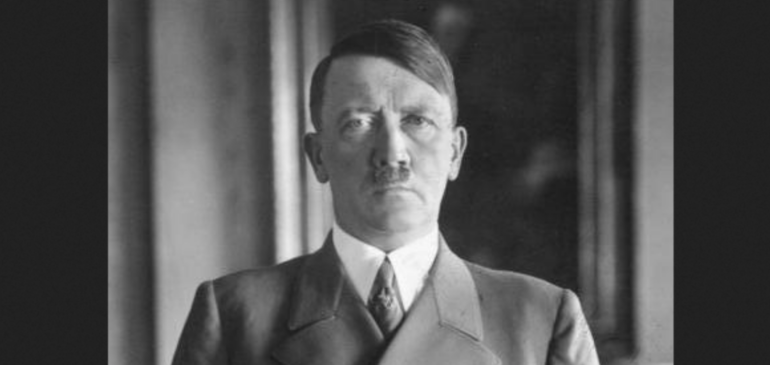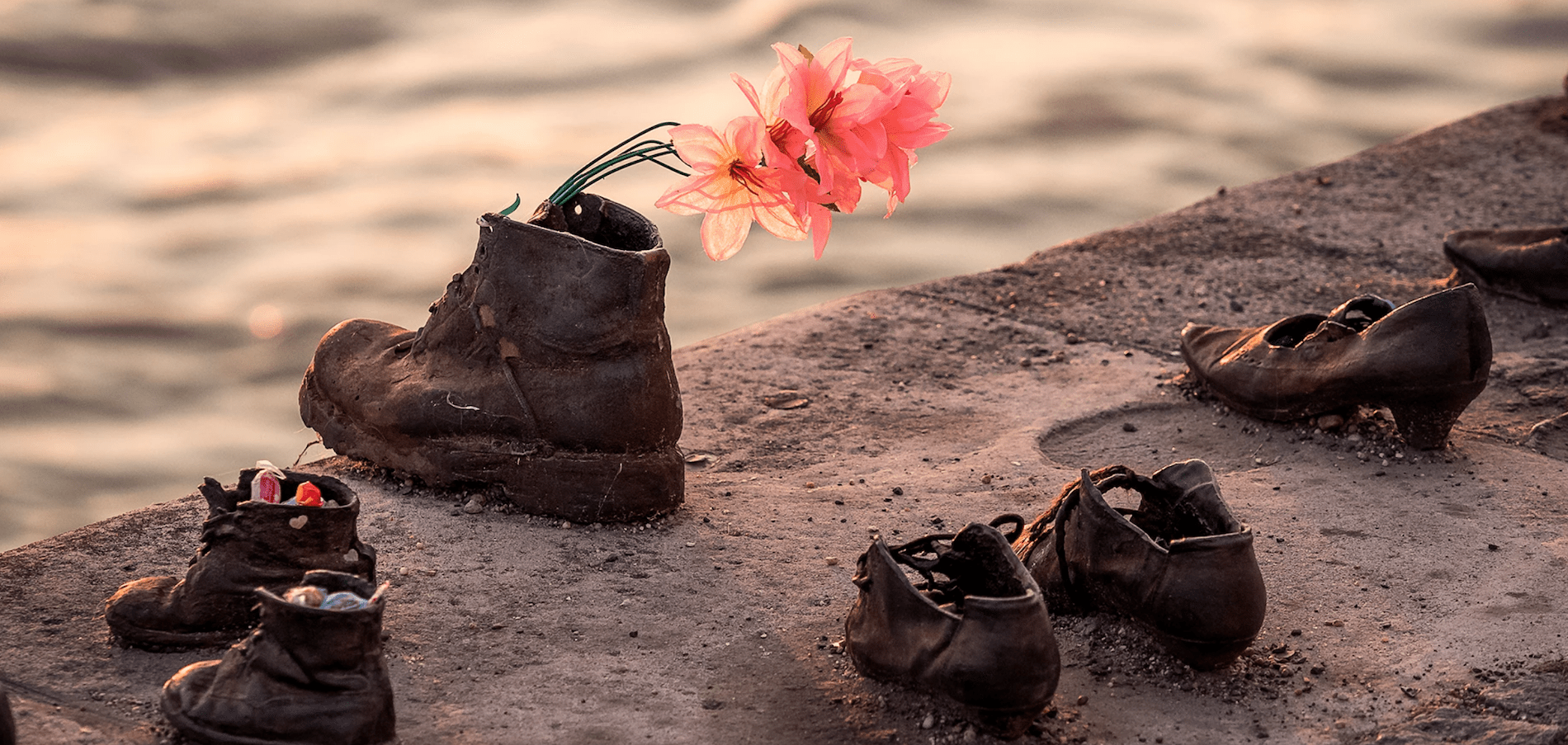
Seven Decades After The Holocaust, Hitler Is Still Destroying Jews, And We Need To Help!
Growing up as a secular Jewish American, the horrors of the Holocaust overshadowed my world as one of the leading reasons my fellow Jews were not religious. Many of their parents or grandparents had abandoned observance because they could not come to terms with a God who would allow such atrocities to occur. Nearly every conversation about faith inevitably ended with someone invoking the Holocaust as to the reason they were an atheist. Decades after Hitler was dead and gone, he was continuing to do his evil work, making Jewish faith and practice difficult or even impossible for countless Jews.
Now, after more than twenty years having lived as an Orthodox Jew, I have discovered that Hitler’s evils have left yet another excruciating mark on the Jewish people. Nearly all the members who come to Makom are trauma victims. Nearly all of their trauma came about due to some extremist or abusive practice of Judaism (the happy people in these communities do not contact us), and I believe that for the majority of them, this too is rooted in the Holocaust.
A few years ago, I met an ex-hasidic man who told me he wanted to start an organization for third generation Holocaust survivors from his community because he could clearly see how the abuses he experienced (which pushed him to leave observance) all connect back to the Shoah. They included, but are not limited to:
- Parents not telling children they love them as a form of “modesty,” when in reality it is a result of being afraid of losing someone you love.
- Teaching children of an angry God and stressing fear and punishment as a result of feeling like we brought this suffering on ourselves
- Guilt, guilt, and more guilt
- Pushing young adults into marriages that are secure as opposed to ones that are happy.
- Feel pressured to repopulate the Jews that were lost, even if it is more than the parents can handle and halacha allows for less.
- Fear of reporting abuse to non-Jewish authorities allows abuse to fester
- Fear and distrust of non-Jews and the larger world
I brought this theory up to members of Makom and almost all of them agreed with it.
Every descendent of a survivor has a certain amount of trauma passed on. In fact, scientists have discovered that trauma even enters the genes. But after numerous conversations with the members of our organization and other people who are OTD, it seems that the more insular communities have both a higher rate of families with survivors in them than other Jewish communities and that refraining from mixing with the larger world may have made recovering from the PTSD more challenging. This is of course, only a theory, but it is one I believe we should look into more deeply.
As one Hasidic woman told me,”I think that secular and more modern Orthodox Jews acculturated, and that is in and of itself somewhat therapeutic. They didn’t live in the past so much as my community.”
Another member said, “I attribute so much of the dysfunction in my family of origin my ex-husband’s family and honestly the dysfunction of my older children to the Holocaust. The biggest problem I believe was that nobody recognized that the incredible trauma the survivors went through was having a real impact on their children and future generations but rather they were viewed as holy and untouchable.”
A different woman, who is still religious and was serving as a Makom volunteer agreed with this theory too (she left the New York area to discover a healthier form of Judaism than she grew up with). She cited not wanting to insult survivors as a reason her generation quietly took the abuse:
“Because we will naturally respect our elders. And we knew the older generations suffered, so we didn’t want to make waves. Didn’t want to cause more pain. And maybe our teachers were right? Maybe we needed to be the best we could and carry the torch to make up for the 6 million that couldn’t….So we learned to shoulder huge responsibilities and not to complain. Or question. Or even think about what we actually wanted, because that was never the consideration. But this led to social problems today– the younger generations don’t understand why they’re asked to make the choices they’re asked to make. Why their communities are about “no” and guilt instead of joy and love and– personal choice. They don’t know why they need to put up with craziness in the name of Torah. So many leave.”
She continued: “Even if one wasn’t a direct descendant–the trauma impacted the entire [New York] Orthodox community where I lived. A lot of unhealthy behaviors such as perfectionism, tolerance of abuse etc., are results or after-effects of the Holocaust. Instead of being viewed as unhealthy behaviors they are lauded. The community tended to be/still is reactive instead of proactive in every way. They approached the world with fear-based mentality instead of one based on love. The community became more insular, threatened, and frankly dour. American Orthodoxy was not originally this way. Parents of said kids were mostly unaware of what the teachers and administrations were saying, as they tended to be overworked. Sadness and depression was considered the baseline of normal.”
So what is the point of discussing this? To raise awareness, so we can promote healing. So our community can finally climb out of this deep chasm of pain.
It is the trauma inside the Orthodox community that the media has latched onto. They publicize it and the world (both secular Jews and non-Jews) assumes that abuse is Orthodoxy. And then people are reviled by Torah and Torah Jews.
While abusive behavior is, of course, revolting, if people understood that in many cases it is rooted in generations of deep, deep trauma, it could be understood within a context. Instead of hating this community, fellow Jews who care about Holocaust education and awareness could see this as an opportunity to heal Holocaust trauma. Their tzedaka could go towards the survivors of today: young adults who never stepped foot in a concentration camp, yet still carry the baggage of their grandparents’ pain.
I would also love to see reparations paid to the grandchildren of survivors from the countries that aided and abetted the Nazis. Let them pay for the mental health costs and the rehab bills of this third generation that is still reeling from the horrors of the Shoah. I would love for an academic to conduct a study on this phenomenon: how did the Holocaust change Orthodox communities? How did more and less insular Jewish communities cope with healing? I have presented this theory to several Holocaust scholars and none are aware of such a study ever being done. Let’s do one.
I told a Makom member who is working to separate dysfunction from Judaism that: “Healing as a human being and then discovering how uplifting our heritage can be is the greatest revenge we could have on the people who tried to break us.”
She responded: “That really hit me. I’m similar in personality to my grandfather- we both always had a spunky streak (and are stubborn/tenacious) – and we were always close. He survived Auschwitz as a twenty year old (who spent his teenage years in starvation and agony) and went on to defy Hitler, yemach shemo, by building a large multigenerational Torah observant family and many students as well. It’s true, the Nazis killed more than just bodies. That’s partly why I spent my teenage years in emotional agony. But now I’m following the stubborn streak that I share with my grandfather and defying Hitler by building an emotional wellness that was never there before. And be”H the revenge will be complete.”
We are doing our best to be part of this healing. But we need your help!
If you found this content meaningful and want to help further our mission through our Keter, Makom, and Tikun branches, please consider becoming a Change Maker today.








4 comments
Sort by
” I would love for an academic to conduct a study on this phenomenon: how did the Holocaust change Orthodox communities? How did more and less insular Jewish communities cope with healing? I have presented this theory to several Holocaust scholars and none are aware of such a study ever being done. Let’s do one.”
Here’s one: https://www.ncbi.nlm.nih.gov/pmc/articles/PMC6720013/
Thanks. But this isn’t comparing Hasidic and haredi survivors to other groups.
“Even if one wasn’t a direct descendant–the trauma impacted the entire [New York] Orthodox community where I lived. A lot of unhealthy behaviors such as perfectionism, tolerance of abuse etc., are results or after-effects of the Holocaust. Instead of being viewed as unhealthy behaviors they are lauded. The community tended to be/still is reactive instead of proactive in every way. They approached the world with fear-based mentality instead of one based on love. The community became more insular, threatened, and frankly dour. American Orthodoxy was not originally this way. Parents of said kids were mostly unaware of what the teachers and administrations were saying, as they tended to be overworked. Sadness and depression was considered the baseline of normal.”
Can you specify which community this woman comes from? Otherwise, you are tarring every single Orthodox community in New York with the same brush. You of all people know that we are not all the same! We aren’t all or even mostly “dour” and “sadness and depression” are not normal!! If she is referring only to the past, it needs to be made clear.
Thank you for taking the time to read my comment!
I purposely left out the community as to not tarnish as specific neighborhood. I did note that it was in NY. The point being is that she felt in this concentrated area of survivors, the cloud of darkness hung over people even if they didn’t have survivors in the family. Of course it’s not everyone. But it seems that for survivors in insular groups, it was worse.